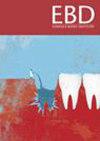正颌外科手术患者手术部位感染的抗生素治疗。
Q3 Dentistry
引用次数: 0
摘要
数据来源:PubMed、Embase、Web Science 和 Scopus:研究选择:PubMed、Embase、Web of Science 和 Scopus:针对接受任何类型正颌外科手术的患者的随机对照试验(RCT),这些试验评估了手术部位感染(SSI)的情况:手术后长期(至少两天)使用抗生素与手术后短期(一天)使用相同药物的情况;或正颌外科手术患者手术后单日使用抗生素与手术后阶段术前单次使用任何抗生素的情况。不包括单臂研究、回顾性研究、未发表的数据、未经同行评审的研究、社论以及不专门针对正颌外科手术患者的试验:从纳入的研究中提取了发表年份、主要作者姓名、研究地点、抗生素类型、抗生素方案及其类型、剂量和时间、样本大小、对照组方案、男性性别、年龄、诊断和 SSI 发生率等数据。汇总的 SSI 发生率被用来计算风险比(RR):共有 11 项研究符合纳入标准。根据荟萃分析,与短期使用抗生素相比,长期使用预防性抗生素可显著降低正颌外科手术后的 SSI 风险。此外,荟萃分析表明,与术前使用单一剂量抗生素的患者相比,使用单日预防性抗生素的患者 SSI 风险显著降低:研究发现,与单日使用抗生素相比,长期(2-7 天)预防性使用抗生素可降低 SSI 风险。反过来,研究还发现后者比术前单次使用抗生素剂量更有益。本文章由计算机程序翻译,如有差异,请以英文原文为准。
Antibiotics for surgical site infections in patients undergoing orthognathic surgery
PubMed, Embase, Web of Science and Scopus. Randomized Controlled Trials (RCTs) for patients undergoing orthognathic surgery of any type, which evaluated surgical site infections (SSI) in either: long-term (at least 2 days) post-surgical antibiotic dosing versus short term (one day) post-surgical dosing for the same drug; or Orthognathic surgery patients administered a post-surgical single-day antibiotic versus a singular pre-operative dosing of any antibiotic in the post-surgical phase. Singe-arm studies, retrospective studies, unpublished data, studies which were not peer-reviewed, editorials and trials not dealing with patients undergoing orthognathic surgery specifically were not included. Data for the publication year, primary author name, location of the study, antibiotic type, antibiotic protocol with its type, dosing and timing, sample size, protocol of the control group, male gender, age, diagnosis and rates of SSIs were extracted from the included studies. Pooled rates of SSIs were utilized to produce risk ratio (RR). A total of eleven RCTs met the inclusion criteria. As per the meta-analysis, post-orthognathic surgery SSI risk was reduced significantly as a result of long-term prophylactic antibiotic usage when compared to short-term utilization. Further, the meta-analysis demonstrated that there was a significant reduction of SSI risk in patients on a single day prophylactic antibiotic regimen in comparison to those on a single preoperative antibiotic dose. The study observed that long-term (2–7 days) prophylactic antibiotics reduce SSI risk when compared to antibiotic administration over a single day. In turn, it was also found that the latter was of greater benefit over a pre-operative single antibiotic dosage.
求助全文
通过发布文献求助,成功后即可免费获取论文全文。
去求助
来源期刊

Evidence-based dentistry
Dentistry-Dentistry (all)
CiteScore
2.50
自引率
0.00%
发文量
77
期刊介绍:
Evidence-Based Dentistry delivers the best available evidence on the latest developments in oral health. We evaluate the evidence and provide guidance concerning the value of the author''s conclusions. We keep dentistry up to date with new approaches, exploring a wide range of the latest developments through an accessible expert commentary. Original papers and relevant publications are condensed into digestible summaries, drawing attention to the current methods and findings. We are a central resource for the most cutting edge and relevant issues concerning the evidence-based approach in dentistry today. Evidence-Based Dentistry is published by Springer Nature on behalf of the British Dental Association.
 求助内容:
求助内容: 应助结果提醒方式:
应助结果提醒方式:


